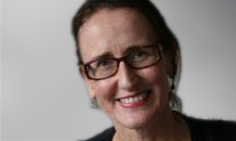DETROIT oncologist Farid Fata was sentenced to 45 years’ jail this month, in what has been described as America’s worst case of medical fraud.
Fata gave massive doses of unnecessary chemotherapy to hundreds of patients, causing permanent injury to many, The BMJ reports.
Some of those patients did not even have cancer, but the doctor convinced them otherwise.
“I have one tooth left”, one patient told the court, describing the side effects of his unnecessary chemotherapy. “I had to have pieces of my gums and teeth cut out. Every time I think of his name I get a headache. I get sick to my stomach. I can’t sleep.”
The court heard from the widow of another patient who died in December after Fata ignored his renal cancer and treated him instead for non-existent lung cancer because it was more remunerative.
In the US, oncologists, unlike other specialists, can take a profit margin on the drugs they prescribe.
Somehow, Fata managed to operate Michigan’s largest private cancer clinic, billing patients and insurance companies a total of US$34.7 million ($A47 million) over 5 years, at least half of which he has now admitted was for unnecessary treatment.
The whistle was eventually blown by his office manager, who became suspicious because staff kept leaving the practice. One departing oncologist said he was going because Fata was giving chemotherapy to healthy patients.
The worst of the US medical profession have certainly been on display in recent weeks.
Maryland anaesthetist Tiffany Ingham lost a defamation and malpractice case in June after her insulting comments about a patient during a colonoscopy were accidentally recorded on his mobile phone.
She had joked to colleagues during the procedure that the man might have syphilis and “tuberculosis of the penis”, and falsely recorded that he had hemorrhoids on his chart.
“After five minutes of talking to you in pre-op I wanted to punch you in the face and man you up a little bit”, she was recorded saying to her unconscious patient.
When health professionals behave this badly, it does more than create sensational headlines. It undermines trust in medical treatment and the people who deliver it.
Many have asked why Ingham’s colleagues in the operating theatre tolerated, and, even apparently participated in, her contemptuous behaviour towards the patient.
And why did Fata’s coworkers simply leave the practice, without exposing his cruel and fraudulent behaviour?
The Fata case has been a boon for those spruiking “natural” cancer treatments.
“It happens more often than you can imagine, but more Doctors are finally getting caught in the act of misrepresenting their oath and fraudulently diagnosing healthy patients with cancer to turn a quick buck from kickbacks on chemotherapy poisons”, says one article that has been widely shared online.
The headline also claims more doctors are confessing to intentionally diagnosing healthy people with cancer to make money, though Fata’s is the only case cited.
“Why shouldn’t Doctors lie when the entire cancer industry is one gigantic fabrication from start to finish?” the article goes on to ask.
In a cruel twist, Fata could end up being responsible not just for the harm done to the patients in his care, but to others who are convinced to turn away from treatments that might help them.
Jane McCredie is a Sydney-based science and medicine writer.

 more_vert
more_vert
This highlights the advantage of our system where the GP refers patients to specialists and is kept informed of proposed treatment.
I have just finished reading Deadly Medicines and Organised Crime How big pharma has corrupted healthcare by Dr Peter Gotzsche.
In response to the issue of why do doctors just leave without giving feedback, there is an assumption inherent in this statement that there was no feedback given.
Unfortunately for me, I have personal experience of being “one of the doctors who ‘just left'”. In my case, I had already given feedback regarding very substandard treatment. Not only was it ignored, but there were attempts to discredit me once I had provided the feedback. If it happens here in NSW, there is no good reason to suspect it wouldn’t happen elsewhere inthe Medical world.
we are looking not just at individual issues here, but also at industry / professional / bureaucratic issues as well.
The issue regarding ‘a percentage of the cost of chemotherapy being paid to the doctors’, demonstrates the exact reason why those who diagnose, should never be allowed to profit from prescription of treatment. So ….. our government is actually considering giving permission for pharmacists to extend their role in giving diagnosis plus provision of pharmaceuticals (at a profit) to those who are unwell? It beggars belief that such a conflict of interest can even be seriously discussed.
In this regard I would say many GP and mental health professionals due to lack of training or lack of over training in mental health forget that mental health issues too are not cancerous as they portray. There are cases where GPs misdiagnose migraine headache as depression headache, underlying Vit D deficiency to a level of 15 was not diagnosed but tagged as psycho somatic pain of the muscle, colitis also again tagged as psycho somatic pain. And trying to push for unnecessary medicine is not uncommon.
Losing trust on GP and mental health professionals is also not difficult.